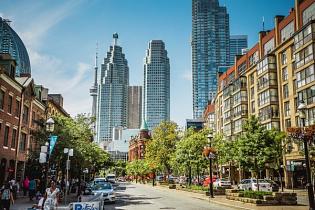Toronto to produce renewable natural gas from green bin waste
The City of Toronto is to begin producing renewable gas (RNG) from green bin organic waste and injecting it into its natural gas grid.
Thought to be one of the first of its kind in North America, the project supports the City’s TransformTO Climate Action Strategy, Net Zero Carbon Plan for City Buildings, Long Term Waste Management Strategy and goal of becoming Ontario’s first city with a circular economy.
Reducing emissions
The Canadian City has been exploring how it can harness the green energy potential of the biogas and landfill gas produced at its solid waste management sites as part of efforts to reduce greenhouse gas (GHG) emissions, drive economic efficiencies and improve social outcomes.
Working with Enbridge Gas, the City has installed a biogas upgrading facility at the Dufferin Solid Waste Management Services site. The new infrastructure will allow the City to take the raw biogas produced from processing green bin organics, turn it into RNG and inject it into the natural gas grid for use by the City.
Enbridge is Canada’s largest natural gas storage, transmission and distribution company based in Ontario.
As per the strategy that was approved by City Council last year, the RNG produced will be blended with the natural gas that the City buys to create a low-carbon fuel blend that will be used across the organisation to power vehicles and heat City-owned facilities, allowing for a reduction in GHG emissions citywide.
“This project represents a path to low-carbon fuel for the City and will play an important role in helping us reach our TransformTO goal of becoming net zero by 2050 or sooner,” said mayor John Tory. “Climate action remains a top priority for Toronto, with climate change and resilience identified as one of the focuses of the City’s Covid-19 recovery and rebuild work.”
The production of RNG from biogas has the environmental benefit of closing the carbon loop by capturing the biogas produced (instead of flaring/burning it off), upgrading the biogas to RNG pipeline quality, and then using it to displace a fossil fuel with a renewable green fuel.



